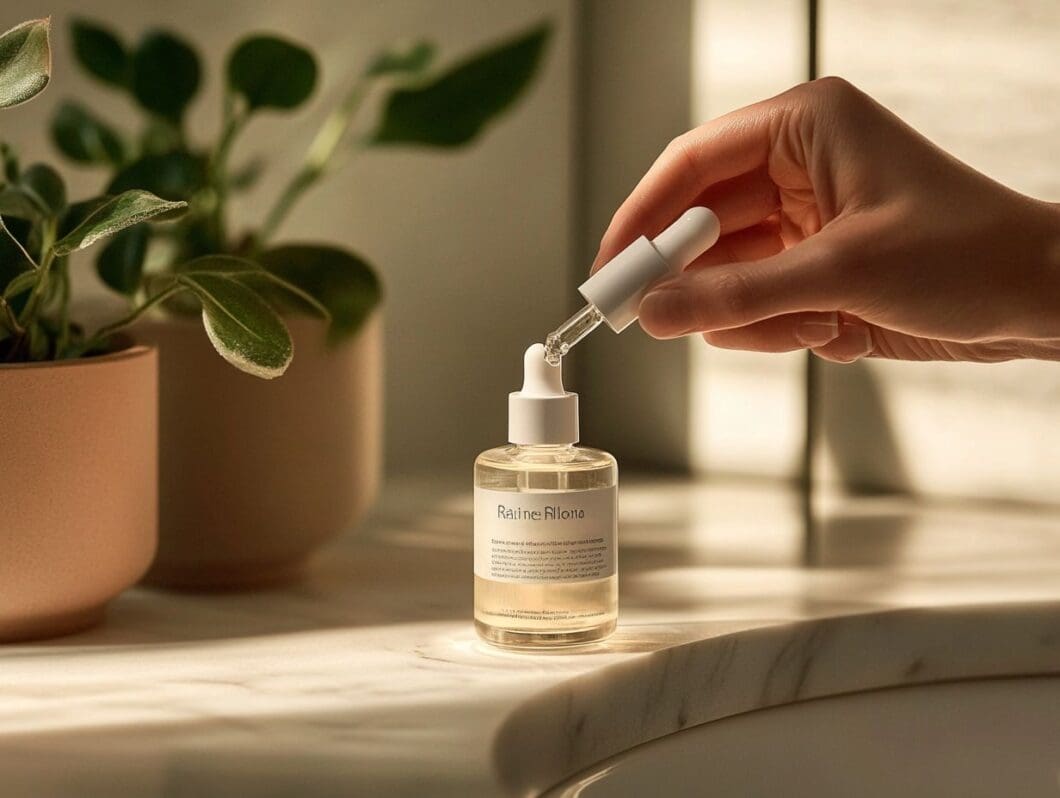Retinol has emerged as a powerhouse ingredient in skincare, celebrated for its ability to transform skin health.
From enhancing skin texture to combating signs of aging and treating acne, its benefits are impressive.
Navigating the world of retinol can be daunting, especially regarding safe application and managing potential side effects.
This guide will provide everything you need to know about retinol, ensuring you can incorporate it seamlessly into your skincare routine for maximum results.
Key Takeaways:
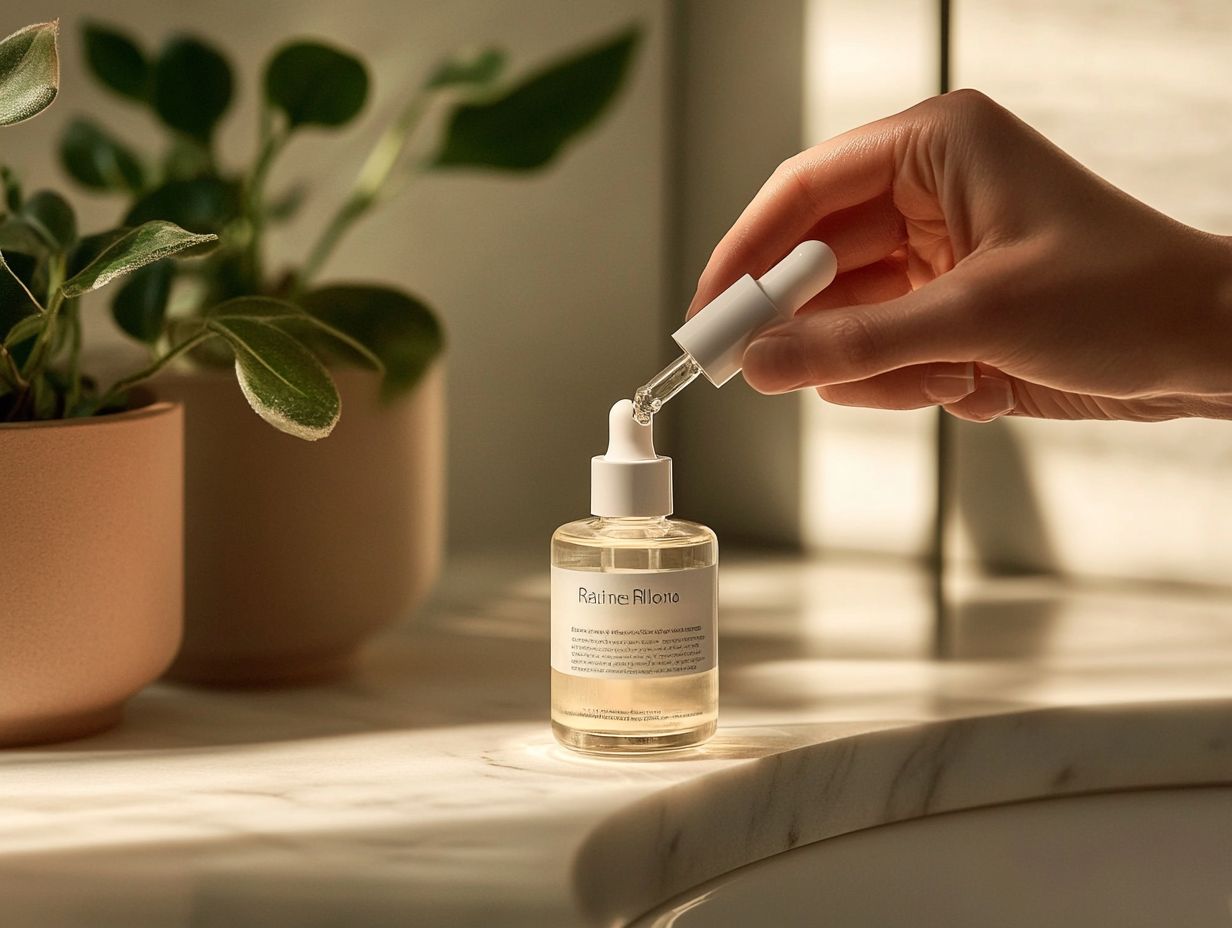
1.
2.
3.
What is Retinol?
Retinol, a derivative of vitamin A, is a highly effective ingredient extensively utilized in skincare for its capacity to enhance skin health and address a range of skin conditions. It is widely recognized in dermatology for its role in promoting cell turnover, increasing collagen production, and improving the overall appearance of the skin.
This remarkable compound possesses a chemical structure that enables it to penetrate deeply into the skin, where it exerts its beneficial effects. Retinol is available in both prescription retinoids, which provide a more concentrated dosage, and over-the-counter formulations, thereby making it accessible to a broad audience.
Its significance in skincare is substantial, as it effectively addresses concerns such as uneven skin texture, fine lines, and persistent acne. By stimulating the production of new skin cells and encouraging an even complexion, retinol serves as a powerful ally in various dermatological treatments.
Understanding its mechanisms and learning how to appropriately balance its usage is essential for individuals seeking to achieve healthier skin.
The Benefits of Retinol
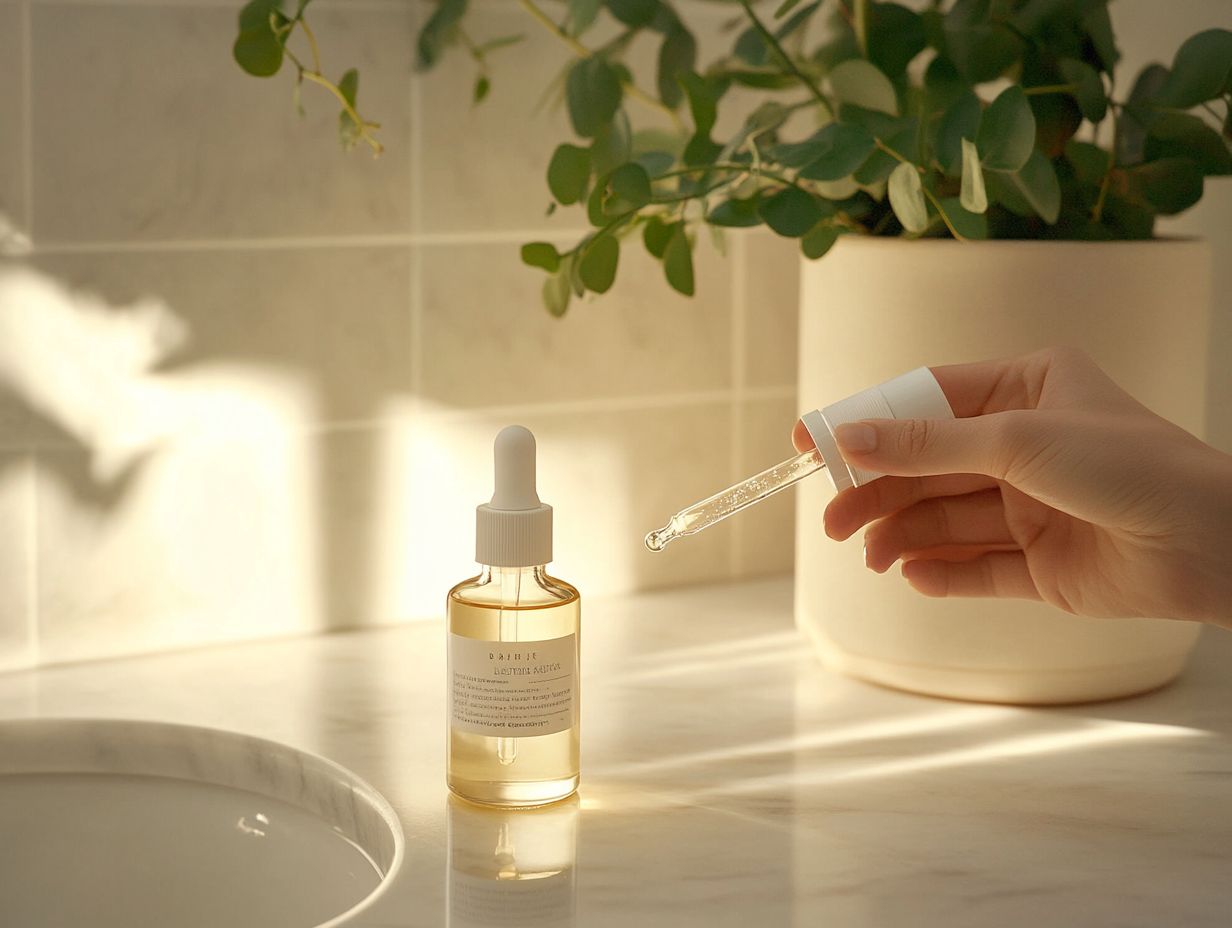
Retinol presents numerous benefits that render it an essential component of effective skincare regimens, particularly for individuals addressing concerns such as acne, fine lines, and wrinkles.
By promoting enhanced cell turnover, retinol effectively improves skin texture and addresses issues like hyperpigmentation and acne scarring. Furthermore, its capacity to stimulate collagen production positions it as a formidable ally in combating photoaging, ultimately contributing to a more youthful and radiant complexion.
Improved Skin Texture and Appearance
One of the most significant advantages of retinol is its capacity to significantly enhance skin texture and overall appearance by promoting increased cell turnover. This process facilitates the shedding of dead skin cells, thereby revealing fresher, healthier skin beneath and reducing the visibility of dark spots and rough patches.
At the cellular level, retinol accelerates the natural exfoliation process, which can result in a more uniform skin tone and improved elasticity. For individuals with oily or acne-prone skin, retinol can be particularly transformative, as it effectively unclogs pores and reduces the frequency of breakouts.
Conversely, individuals with sensitive skin may need to approach retinol with caution, possibly incorporating it gradually to mitigate the risk of irritation. Regardless of skin type, the crucial role of retinol in stimulating collagen production is noteworthy, as this helps maintain youthful and supple skin.
Incorporating retinol into a skincare regimen can yield remarkable results, establishing it as a highly sought-after solution for a variety of skin concerns.
Anti-Aging Effects
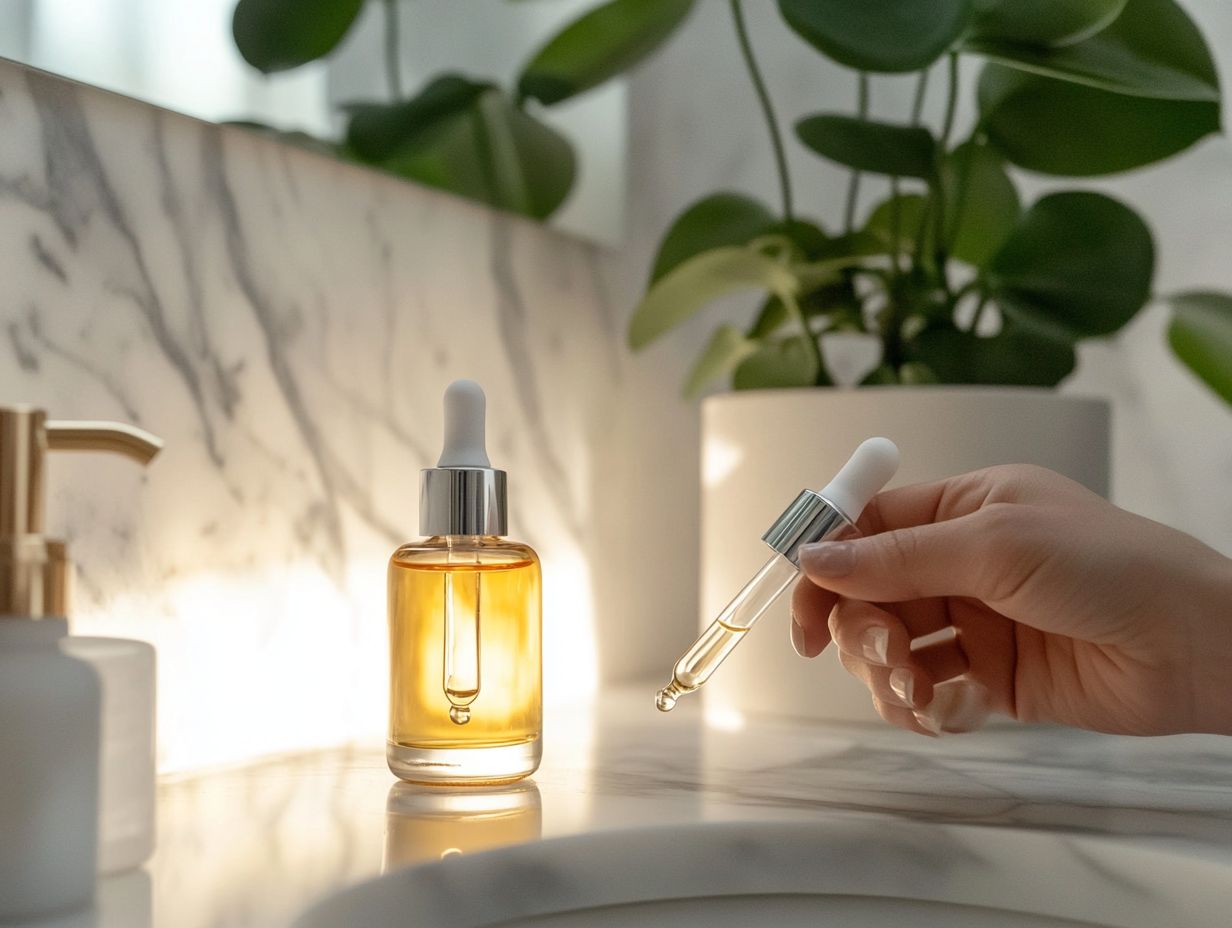
Retinol’s esteemed anti-aging properties are attributed to its capacity to stimulate collagen production, which is essential for preserving skin elasticity and firmness. Consistent application of retinol can lead to a noticeable reduction in fine lines and wrinkles, thereby enhancing a more youthful appearance and effectively addressing the signs of aging.
Plus promoting collagen production, retinol facilitates cellular turnover, ensuring that the skin’s surface remains rejuvenated and smooth. Substantial research corroborates these assertions, with numerous scientific studies indicating that topical retinol significantly improves skin texture and tone, thereby enhancing overall skin health.
To successfully incorporate this potent ingredient into an anti-aging skincare regimen, it is recommended to begin with a lower concentration and gradually increase the frequency of application to mitigate the risk of irritation. Additionally, combining retinol with a hydrating moisturizer and broad-spectrum sunscreen will further optimize results, as UV protection is crucial for sustaining the benefits gained from retinol use.
Treatment for Acne and Other Skin Conditions
Retinol is recognized not only for its anti-aging properties but also as a potent treatment for acne and various skin conditions, including rosacea and psoriasis. Its effectiveness in unclogging pores, reducing inflammation, and promoting skin cell turnover aids in clearing acne breakouts and preventing their recurrence.
Scientific research affirms the versatility of retinol, demonstrating its efficacy in addressing a range of issues such as acne vulgaris, where it significantly diminishes the visibility of persistent blemishes. Clinical studies have established retinol’s capacity to modulate the skin’s inflammatory responses, rendering it a viable option for individuals experiencing rosacea flare-ups or managing psoriasis plaques.
Individuals with sensitive skin should exercise caution, as retinol may occasionally cause irritation, redness, and peeling. It is generally recommended that patients begin with lower concentrations and gradually increase usage, allowing the skin to acclimate and ensuring a more comfortable treatment experience.
How to Use Retinol Safely
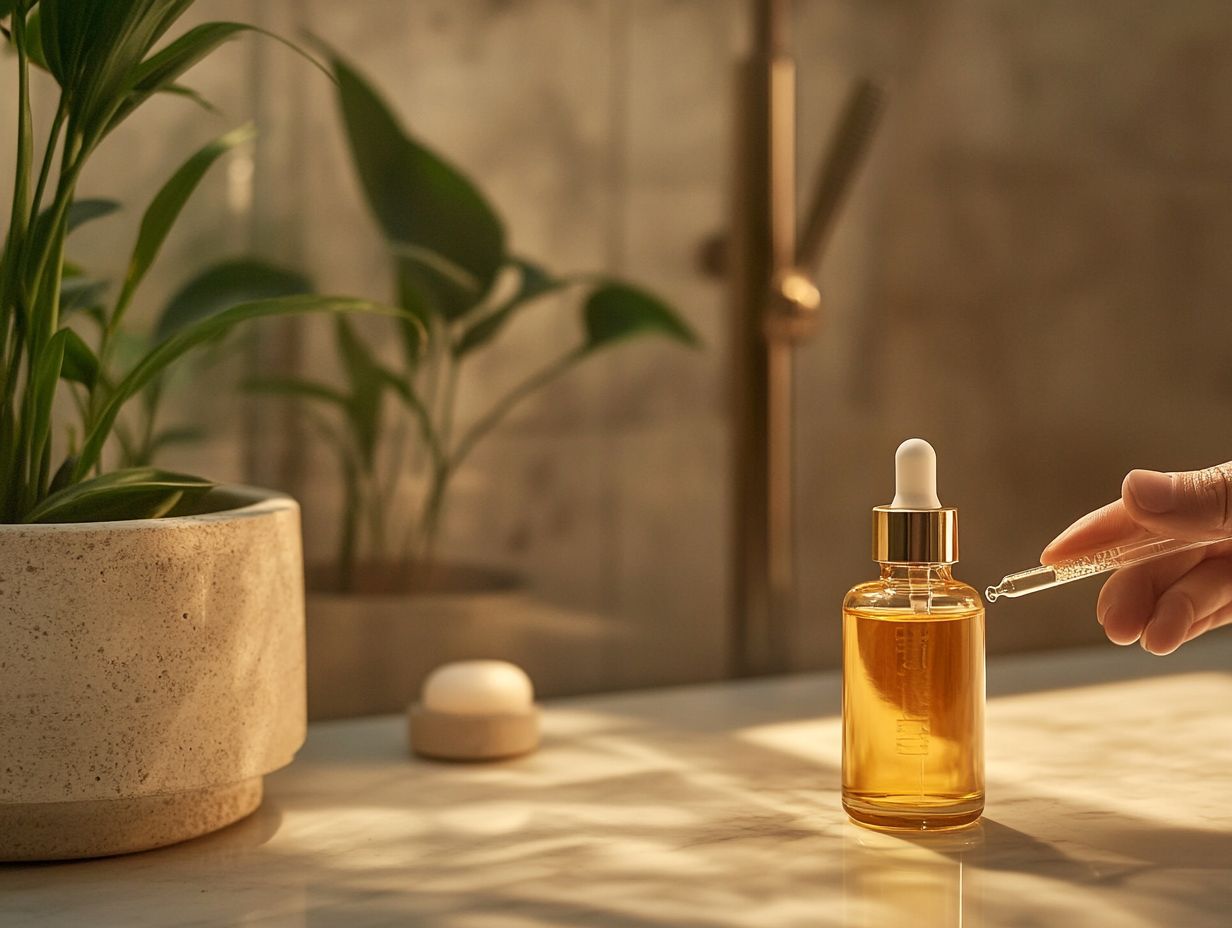
To optimize the benefits of retinol while minimizing potential side effects, it is essential to understand its safe application within one’s skincare routine. Conducting a patch test is imperative to identify any adverse reactions, particularly for individuals with sensitive skin.
Additionally, gradually adjusting the dosage can help mitigate issues such as skin irritation or sensitivity.
Guidelines for Application and Dosage
The proper application and dosage of retinol are crucial to maximizing its effectiveness while minimizing the risk of irritation. It is recommended to start with a pea-sized amount, applied in the evening after cleansing with a gentle cleanser, to facilitate overnight absorption.
Before applying retinol, ensure that the skin is entirely dry to reduce the likelihood of irritation. In your skincare routine, it is advantageous to apply a hydrating toner or essence prior to retinol application to prepare the skin. After applying the pea-sized retinol to the forehead, cheeks, and chin, gently pat it in and allow a few minutes for absorption.
Following the application of retinol, it is essential to use a rich moisturizer to lock in hydration and soothe the skin. Adjusting the concentration of retinol is vital; beginners should start with a lower strength (0.25% or 0.5%) and gradually increase to higher concentrations (1%) as the skin develops tolerance. It is important to introduce retinol slowly, initially using it two to three times a week. For further insights on retinol, check out The Benefits of Retinol and How to Use It Safely.
Potential Side Effects and How to Manage Them
Despite the numerous benefits associated with retinol, it can result in potential side effects such as skin sensitivity, irritation, and even skin purging during the initial stages of use. Understanding these side effects and knowing how to manage them is essential for users who wish to incorporate retinol into their skincare routines.
Many individuals may encounter dryness and flaking as their skin adjusts, highlighting the importance of establishing a consistent routine to mitigate these discomforting symptoms. To address dryness, the introduction of a rich moisturizer can provide the necessary hydration, ensuring that the skin remains supple and smooth.
Given that retinol can increase sun sensitivity, it is imperative to apply a broad-spectrum sunscreen with a minimum SPF of 30 during daytime use. This precaution not only protects the skin from harmful UV rays but also helps maintain its integrity while utilizing potent products.
By adopting these strategies, the experience of using retinol can become significantly more manageable and enjoyable.
Incorporating Retinol into Your Skincare Routine
Incorporating retinol into one’s skincare routine can markedly enhance the effectiveness of products, particularly when combined with other potent ingredients and dietary supplements designed to improve skin health.
It is essential to consider the overall harmony of the regimen to attain optimal results without compromising the skin’s integrity.
Tips for Maximizing the Benefits of Retinol
To maximize the benefits of retinol, it is imperative to establish a well-balanced skincare routine that complements its effects while promoting skin health. The use of hydrating moisturizers and serums can significantly support the skin’s barrier function, thereby enhancing the effectiveness and tolerability of retinol application.
Incorporating these products thoughtfully can improve the overall efficacy of retinol, leading to smoother and clearer skin over time. It is also essential to introduce retinol gradually, especially for individuals with sensitive skin, to facilitate acclimatization. For more information, check out The Benefits of Retinol and How to Use It Safely.
Avoiding potent ingredients such as exfoliating acids or benzoyl peroxide on the same nights can help prevent irritation and reinforce the advantages of the active ingredient. By understanding how to layer products effectively and prioritizing hydration, one can harness the power of retinol to achieve optimal results without compromising skin comfort.


